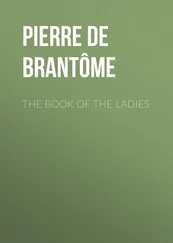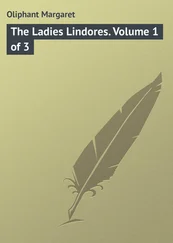"Oh! Here it is," said Cornelius once.
And then, "I see."
And a little later, "But it will take a great deal of stone!"
A few minutes later Cornelius and Jupiter stood upon the riverbank opposite Thoresby.
"So!" said Cornelius softly. "Just as I supposed! It is not built yet.
The scene before Cornelius was one of the most frantic industry imaginable. Massive timbers and blocks of stones lay strewn about on the bank and teams of horses were bringing more every minute. There were workmen everywhere one looked. Some drove or pulled the horses. Others shouted orders. Yet more brought lights and stuck them in the trees. What was very extraordinary about these men was that they were dressed in the oddest assortment of nightgowns, coats, breeches, nightcaps and hats. One fellow had been in such a hurry to get to Thoresby that he had put his wife's gown and bonnet on, but he hitched up his skirts and carried on regardless.
Amidst all this activity two men were standing still, deep in conversation. "Are you the architect?" cried one of them, striding up to Cornelius. "My name is John Alfreton, master mason of Nottingham. This is Mr Wakeley, a very famous engineer. We have been waiting for you to come and tell us what we are to build."
"I have it here," said Cornelius, shewing them the book (which was Giambattista Piranesi's Carceri d'Invenzione ).
"Oh! It's a prison, is it?"
"No, it is only the bridge that is needed," said Cornelius, pointing to a massive bridge lodged within a dreary prison. He looked up and suddenly caught sight of an eerie, silent crowd on the opposite bank. "Who are all those people?" he asked.
Mr Alfreton shrugged. "Whenever industrious folk have work to do, idle folk are sure to gather round to watch them. You will find it best, sir, to pay them no attention."
By one o'clock a huge mass of wooden scaffolding filled the river. The scaffolding was stuffed full of torches, lanterns and candles and cast a strange, flickering light over the houses of Thoresby and the watching crowd. It was as if a firefly the size of St Paul 's cathedral had sat down next to the town.
By two o'clock Henry Cornelius was in despair. The river was not deep enough to accommodate Piranesi's bridge. He could not build as high as he wished. But Mr Alfreton, the master mason, was unconcerned. "Do not vex yourself, sir," he said. "Mr Wakeley is going to make some adjustments."
Mr Wakeley stood a few paces off. His wig was pushed over to one side so that he might more conveniently scratch his head and he scribbled frantically in a little pocket book.
"Mr Wakeley has a great many ideas as to how we shall accomplish it," continued Alfreton. "Mr Wakeley has built famous navigations and viaducts in the north. He has a most extraordinary talent. He is not a very talkative gentleman but he admits that he is pleased with our progress. Oh! It shall soon be done!"
By four o'clock the bridge was built. Two massive semicircular arches spanned the river. Each arch was edged with great rough-hewn blocks of stone. The effect was classical, Italianate, monumental. It would have been striking in London; in Thoresby it dominated everything. It seemed unlikely that any one would ever look at the town again; henceforth all that people would see was the bridge. Between the arches was a stone tablet with the following inscription in very large letters:
THOMAS BRIGHTWIND ME FECIT
ANNO DOMINI MDCCLXXX [8]
David had spent the night inquiring of the townspeople if any of them knew where Tom had got to. As soon as the bridge was built he crossed over and put the same question to the workmen. But an odd change had come over them. They were more than half asleep and David could get no sense out of any of them. One man sighed and murmured sleepily, "Mary, the baby is crying." Another, a fashionably dressed young man, lifted his drooping head and said, "Pass the port, Davenfield. There's a good fellow." And a third in a battered grey wig would only mutter mathematical equations and recite the lengths and heights of various bridges and viaducts in the neighbourhood of Manchester.
As the first strong golden rays of the new day struck the river and turned the water all to silver, David looked up and saw Tom striding across the bridge. His hands were stuffed into his breeches pockets and he was looking about him with a self-satisfied air. "She is very fine, my bridge, is she not?" he said. "Though I was thinking that perhaps I ought to add a sort of sculpture in alto rilievo shewing God sending zephyrs and cherubim and manticores and unicorns and lions and hypogriffs to destroy my enemies. What is your opinion?"
"No," said David, "the bridge is perfect. It wants no further embellishment. You have done a good thing for these people."
"Have I?" asked Tom, not much interested. "To own the truth, I have been thinking about what you said yesterday. My children are certainly all very foolish and most of them are good-for-nothing, but perhaps in future it would be gracious of me to provide them with responsibilities, useful occupation, etc., etc. Who knows? Perhaps they will derive some advantage from it." [9]
"It would be very gracious," said David, taking Tom's hand and kissing it. "And entirely like you. When you are ready to begin educating your sons and daughters upon this new model, let you and I sit down together and discuss what might be done."
"Oh!" said Tom. "But I have begun already!"
On returning to Thoresby to fetch their horses, they learnt that Mr Winstanley's servant had returned from Lincoln with the news that Mr Monkton had died in the night. ("There, you see," said Tom airily, "I told you he was ill.") The servant also reported that the English apothecary, the Scottish physician and the Irish wizard had not permitted Mr Monkton's dying to interfere with a very pleasant day spent chatting, playing cards and drinking sherry-wine together in a corner of the parlour.
"Anyway," said Tom, regarding David's disappointed countenance, "what do you say to some breakfast?"
The fairy and the Jew got on their horses and rode across the bridge. Rather to David's surprize they immediately found themselves in a long, sunlit piazza full of fashionably dressed people taking the morning air and greeting each other in Italian. Houses and churches with elegant facades surrounded them. Fountains with statues representing Neptune and other allegorical persons cast bright plumes of water into marble basins. Roses tumbled delightfully out of stone urns and there was a delicious smell of coffee and freshly baked bread. But what was truly remarkable was the light, as bright as crystal and as warm as honey.
" Rome! The Piazza Navona!" cried David, delighted to find himself in his native Italy. He looked back across the bridge to Thoresby and England. It was as if a very dirty piece of glass had been interposed between one place and the other. "But will that happen to everyone who crosses the bridge?" he asked.
Tom said something in Sidhe, [10]a language David did not know. However the extravagant shrug which accompanied the remark suggested that it might be roughly translated as "Who cares?"
After several years of pleading and arguing on David's part Tom agreed to forgive Igraine for getting married and her three sisters for concealing the fact. Igraine and Mr Cartwright were given a house in Camden Place in Bath and a pension to live on. Two of Igraine's sisters, the Princesses Nimue and Elaine, returned to the Castel des Tours saunz Nowmbre . Unfortunately something had happened to Princess Morgana in the nasty house in the dark, damp wood and she was never seen again. Try as he might David was entirely unable to interest any one in her fate. Tom could not have been more bored by the subject and Nimue and Elaine, who were anxious not to offend their grandfather again, thought it wisest to forget that they had ever had a sister of that name.
Читать дальше












